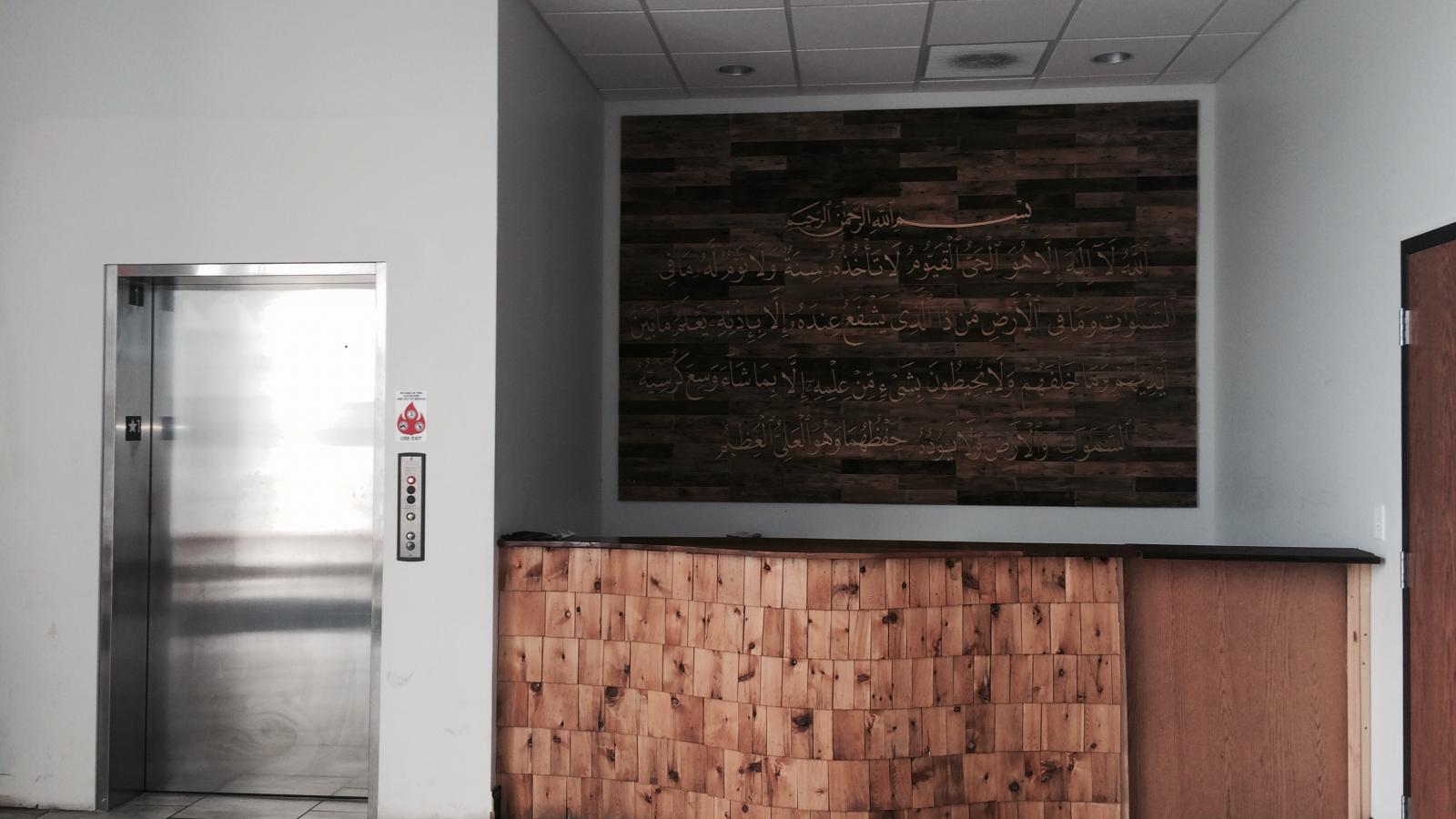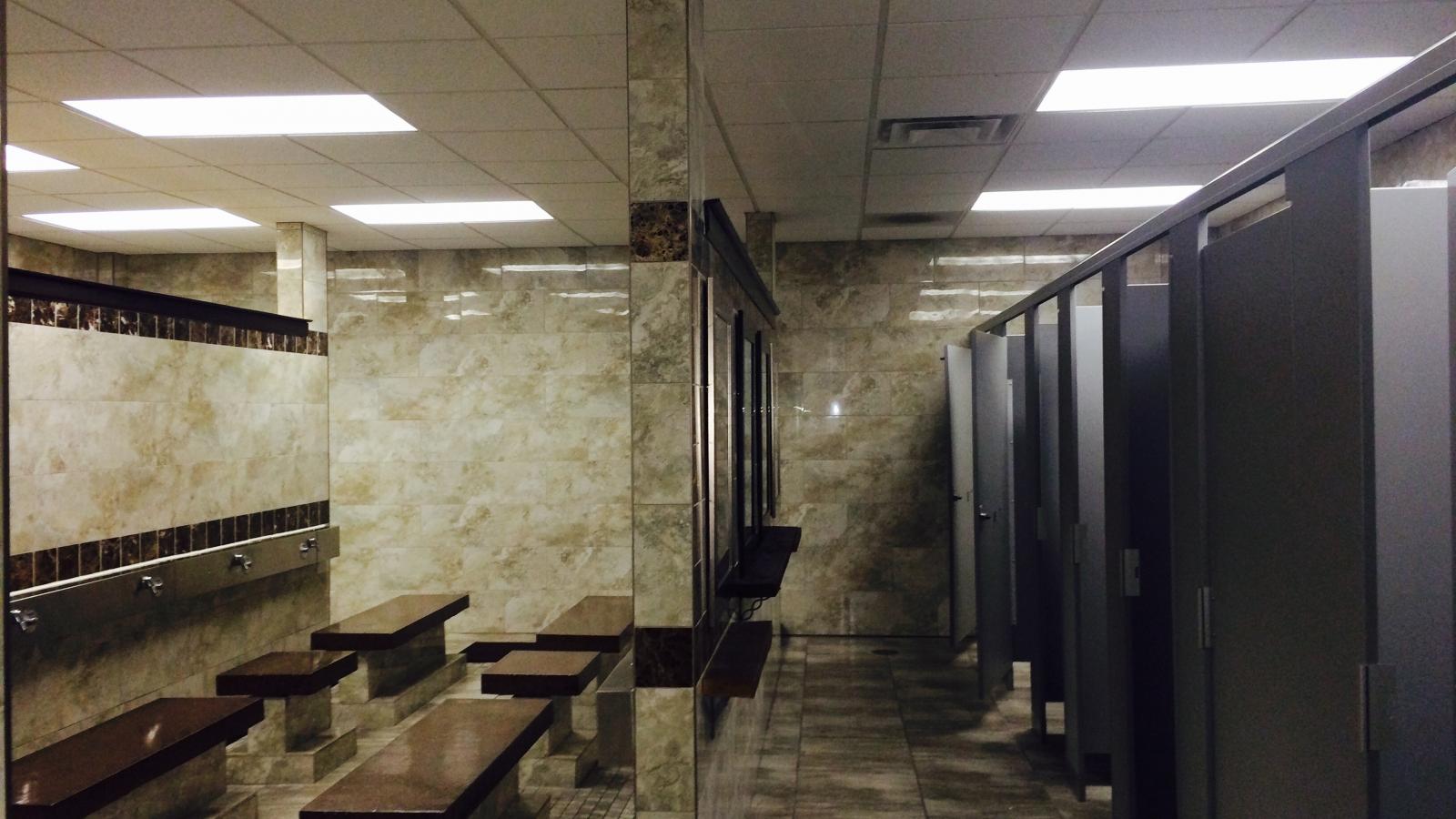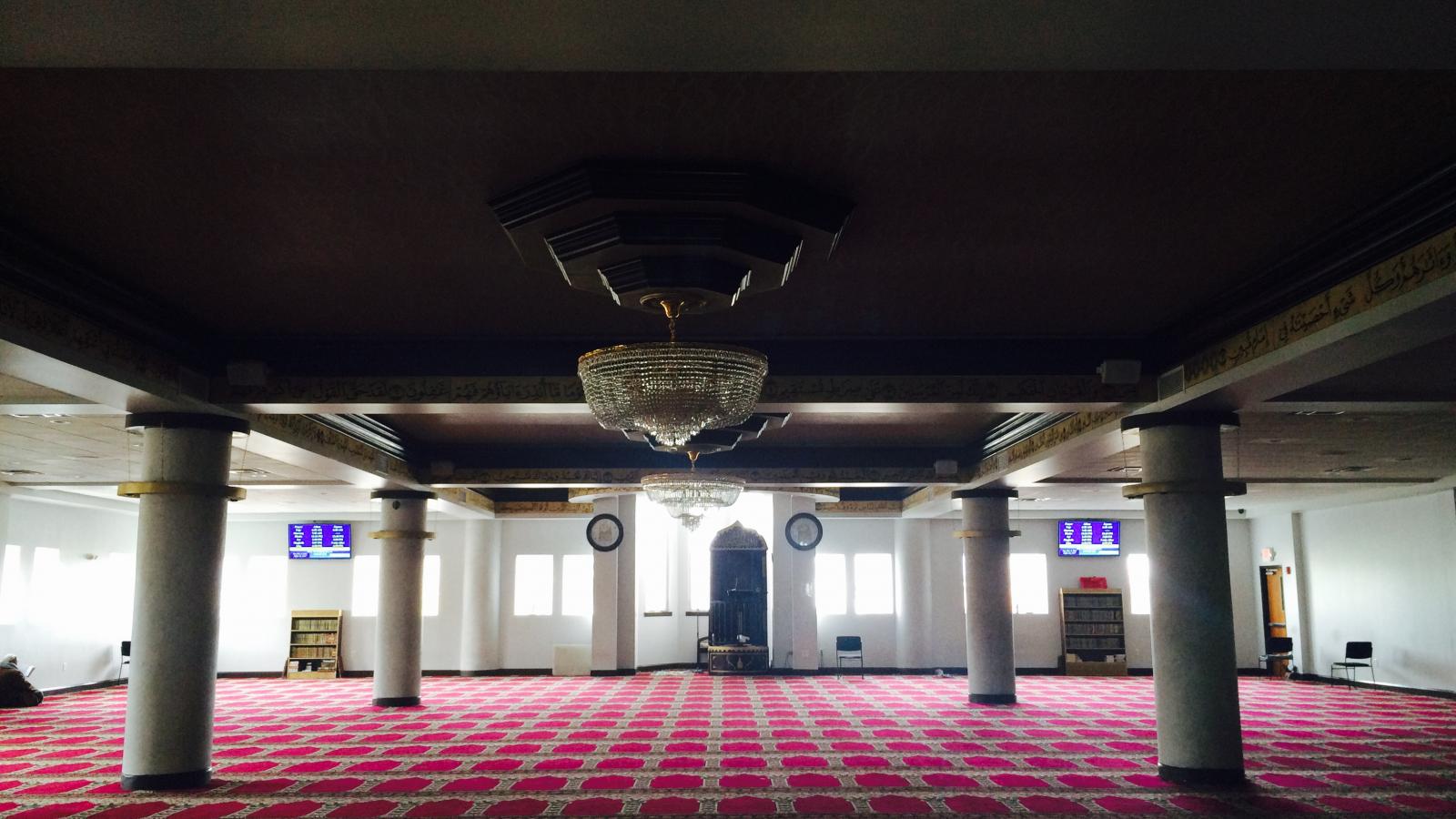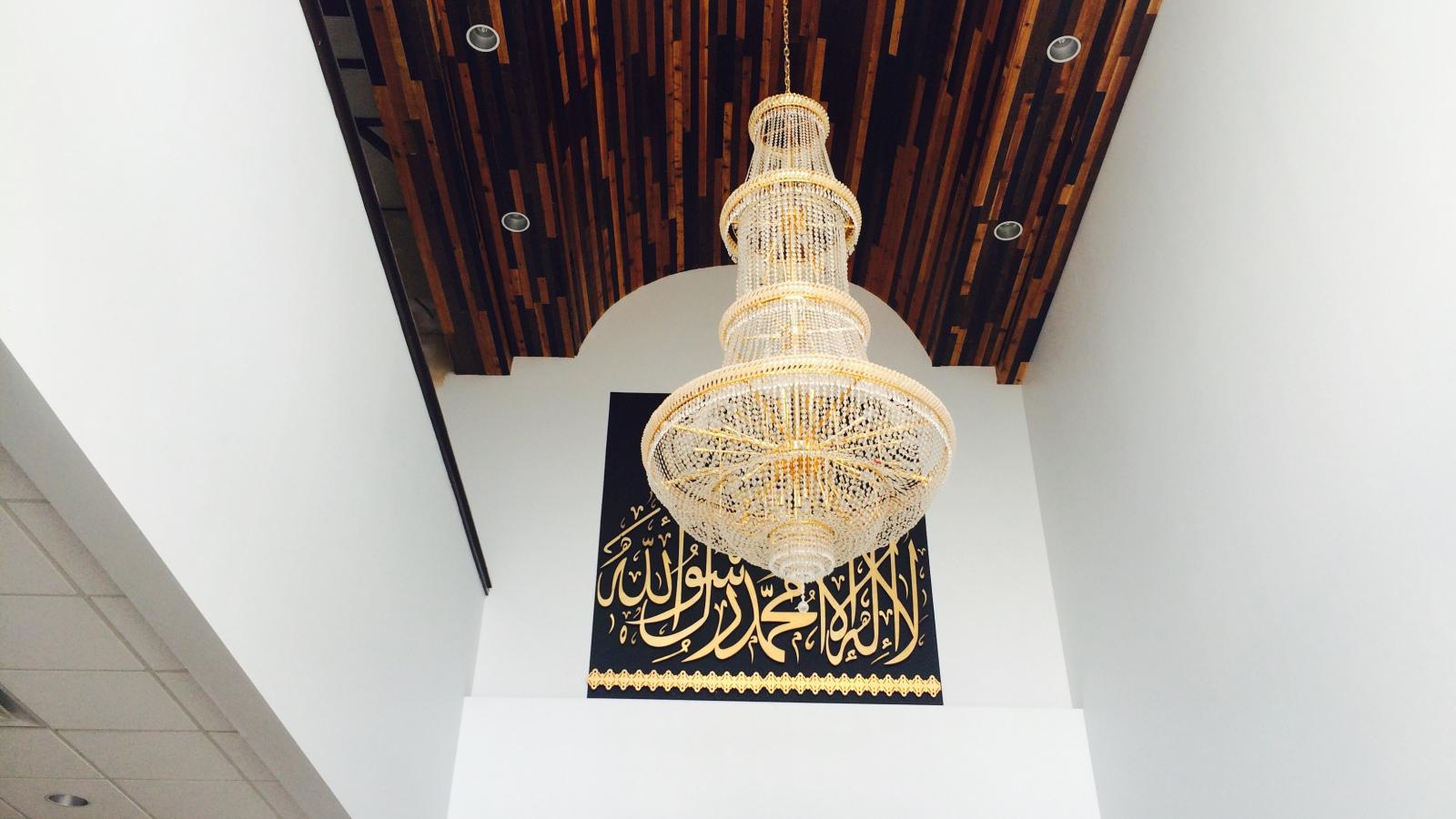Abubakr Asiddiq Islamic Center
“It’s just a reminder, and there is two; one is called the adhan, which is ten minutes before the prayer is performed, and the other one is called the iqama this is usually 5 minutes before the prayer is performed and the imam which is the leader he is calling everybody to prayer.” – Khadija Ibrahim
As the call to prayer echoes through the Abubakr Asiddiq Islamic Center, I can’t help but feel awe at all the intricate designs surrounding the grand prayer hall. The clock counts down toward the second call, and I see lots of people lining up for prayer. As they stand next to each other, shoulder-to-shoulder, I get lost in the beauty of the prayer call. I am astonished by the calligraphy on the walls, the marble accents, and the glistening light of the central chandelier.
The Abubakr Asiddiq Islamic Center is home to a Somali refugee community that has been growing rapidly in recent years. The mosque’s first building was in very poor condition, which is hardly surprising seeing as how its congregation is a working class, immigrant community, most of whom work low-paying jobs. The mosque had open ductwork, leaking PVC pipes, and a makeshift ceiling that was really just a tarp. Over the course of a couple of years, the primarily immigrant community was able to raise $2.8 million dollars through fundraisers and public donations. The community was able to purchase a 10-acre plot of land and build a new mosque that now serves 600+ people each Friday for Jummah prayer.
The Abubakr Asiddiq Islamic center is home to a religiously devoted Somali community. This community is relatively new to the Columbus area, and a majority of its members are refugees who don’t work professional jobs. This masjid and its attendees belong to the Sunni sect of Islam, so they also attract a number of non-Somali attendees, who also identify as Sunni. Even though there are ethnic differences within the masjid, these aren’t reflected when it comes to service because they all follow the same basic teachings. As with most other mosques, the only segregation that occurs is between the genders. Each gender has a separate prayer hall and ablution area.
"Muslims welcome West Side Mosque" by Columbus Dispatch
"West Side mosque opens doors to all during Ramadan" by Columbus Dispatch
Fieldworker: Gameesa Abdalhalim





